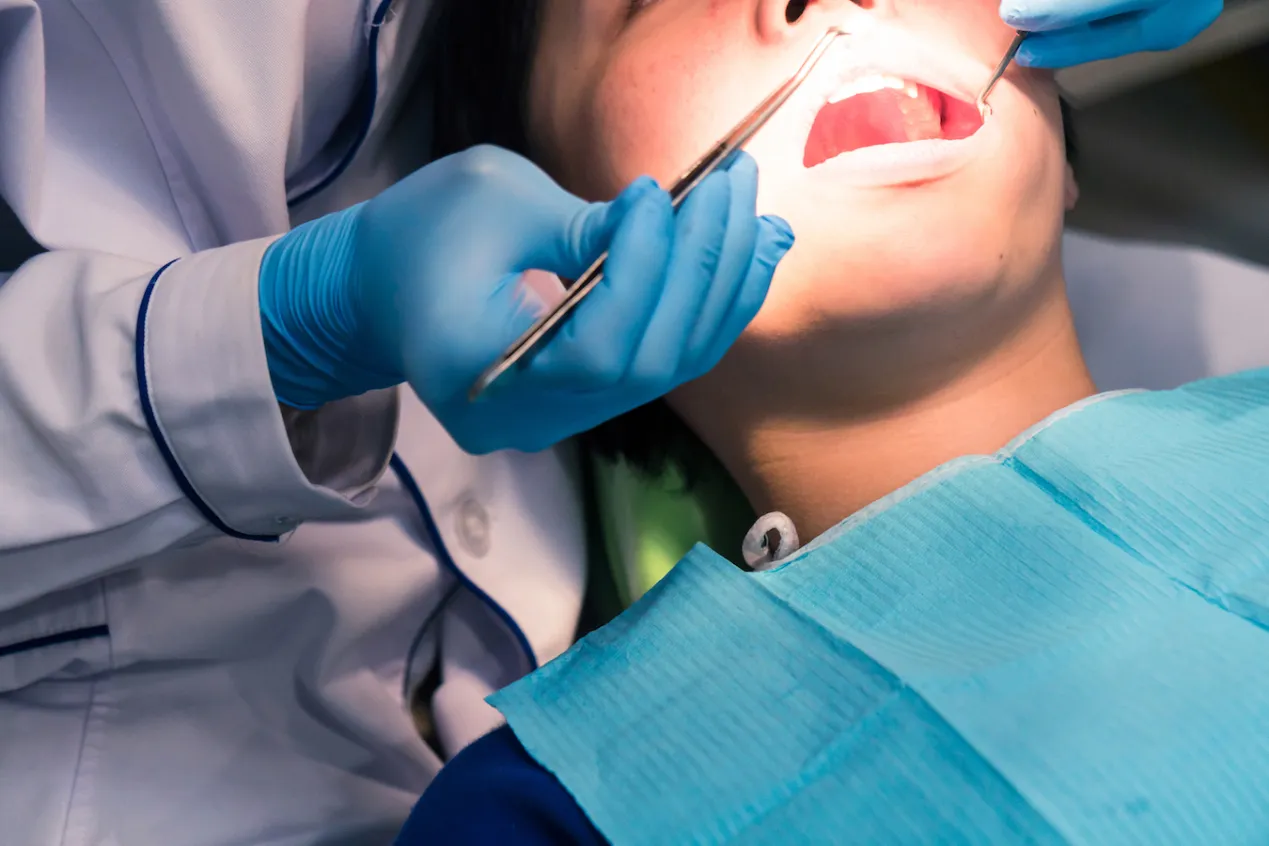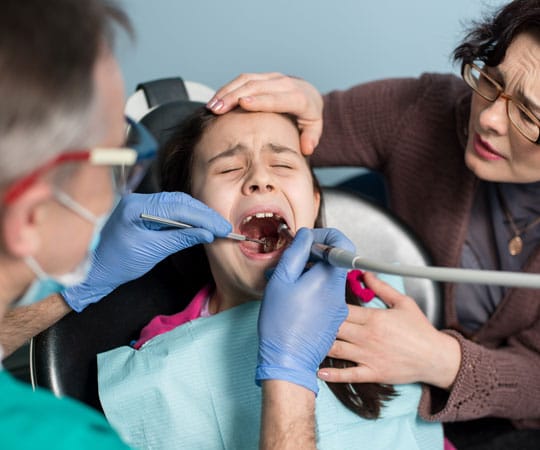A Guide to Usual Dental Problems That Need a Dentist's Treatment
Toothaches, for example, can be symptomatic of extreme problems such as dental caries, split teeth, or abscesses, each needing specific interventions like dental fillings or origin canals. Impacted knowledge teeth and jaw problems can introduce significant discomfort and problems.
Toothaches
Toothaches are a common oral problem that can vary from mild discomfort to extreme discomfort, often indicating an underlying concern that needs specialist attention. This discomfort can come from a selection of sources, consisting of dental cavities, cracked or fractured teeth, and dental abscesses. Each of these problems postures considerable risks if left neglected, potentially leading to more extreme difficulties.
Tooth decays, additionally recognized as cavities, are triggered by the build-up of plaque that wears down tooth enamel, resulting in holes or pits in the influenced teeth (dentist eugene oregon). Fractured or fractured teeth, on the other hand, might result from trauma, grinding, or attacking right into difficult things. These structural problems can expose the sensitive inner layers of the tooth, triggering sharp discomfort and raising the risk of infection. Abscesses are painful infections at the origin of a tooth or in between a tooth and the gum, generally resulting from severe degeneration or untreated tooth cavities.
Effective treatment of toothaches involves addressing the origin. This may consist of fillings for tooth cavities, crowns for cracked teeth, or origin canals and antibiotics for abscesses. Very early treatment by an oral specialist can avoid more degeneration and ease pain, making sure ideal dental health.
Gum Condition
Gum illness, a widespread yet typically overlooked oral problem, manifests through inflammation and infection of the periodontals and sustaining tissues. If left unattended, gingivitis can proceed to periodontitis, an extra serious type identified by the destruction of the sustaining bone and connective tissue, inevitably leading to tooth loss.
The primary cause of periodontal disease is bacterial plaque, a sticky, anemic movie that continuously develops on teeth. Poor oral hygiene, smoking cigarettes, hereditary predisposition, and specific clinical problems, such as diabetic issues, can intensify the risk of creating periodontal illness. Normal dental check-ups are critical for early discovery and monitoring of this problem.
Treatment for periodontal disease varies from specialist dental cleaning and scaling to even more advanced procedures like root planing and periodontal surgical treatment, relying on the severity. Preserving excellent dental hygiene techniques, consisting of brushing two times daily, flossing, and utilizing a disinfectant mouthwash, can dramatically decrease the risk of gum tissue illness and promote healthier periodontals.
Cavities
Dental caries, also referred to as cavities, are a typical oral problem identified by the destruction of tooth enamel because of acid-producing bacteria in the mouth. These microorganisms thrive on sugars and starches from food and drinks, creating acids that gradually wear down the enamel, bring about dental caries formation.
Early-stage tooth cavities might not reveal symptoms, however as they advance, they can trigger tooth pain, sensitivity to warm or cold, visible openings or pits in the teeth, and staining. If left neglected, cavities can permeate deeper layers of the tooth, possibly leading to serious discomfort, infection, and even missing teeth.
Avoiding dental caries includes a combination of good dental health techniques and dietary routines. Normal brushing with fluoride tooth paste, flossing, and regular oral check-ups are vital. Dental practitioners may also advise additional preventive actions, Going Here such as fluoride treatments and dental sealants, to secure teeth from decay.
Minor dental caries can be resolved with oral fillings, which restore the tooth's structure. Much more sophisticated situations may need crowns or even origin canal therapy if the decay has reached the tooth's pulp.

Impacted Knowledge Teeth
Affected wisdom teeth are a common oral issue that happens when the 3rd molars, generally referred to as knowledge teeth, fail to completely arise or line up properly within the mouth. This problem typically arises from inadequate room in the jaw or an abnormal growth angle of the teeth. Impacted knowledge teeth can bring about a variety of issues, including pain, damage, and infection to nearby teeth.
When knowledge teeth come to be impacted, they are often partially erupted or remain completely under the gum line. This partial eruption can create a pathway for microorganisms to get in the gum tissues, bring about infections that materialize as swelling, discomfort, and also high temperature. In addition, affected knowledge teeth can put in pressure on surrounding teeth, potentially triggering he said crowding or moving.
A thorough dental exam, usually including X-rays, is necessary for identifying impacted wisdom teeth. Treatment frequently entails surgical removal, executed by an oral cosmetic surgeon. The procedure aims to reduce pain and stop more issues, such as cysts or damage to surrounding bone structures. Post-operative care is important to make sure appropriate recovery and lessen the danger of infection. Regular oral exams are advisable to check the problem and maintain oral health and wellness.
Jaw Conditions
Jaw disorders, jointly understood as temporomandibular joint (TMJ) problems, include a series of conditions that influence the jaw joint and surrounding muscular tissues. These problems can materialize via signs such as discomfort or tenderness in the jaw, trouble chewing, a popping or clicking noise when shutting the mouth or opening up, and also persistent headaches. TMJ problems can emerge from different factors, including joint inflammation, jaw injury, or habitual actions like teeth grinding or jaw clenching.
Diagnosis of TMJ problems generally involves a comprehensive examination by a dental expert, consisting of a physical exam of the jaw, dental X-rays, and often progressed imaging strategies explanation like MRI or CT scans to assess the joint's condition. Therapy alternatives vary relying on the severity of the disorder. Non-invasive methods such as physical treatment, oral splints, and medicines targeted at reducing inflammation and discomfort are typically first-line therapies. In more serious cases, surgical interventions may be required to correct structural problems within the joint.
Early intervention by a dental expert is important to avoid the progression of TMJ problems and to keep total dental health and wellness. Individuals experiencing consistent jaw pain or dysfunction must seek timely assessment and treatment.
Final Thought
Keeping oral wellness requires prompt expert care to deal with typical oral problems. Toothaches commonly suggest underlying issues such as dental caries, split teeth, or abscesses, calling for prompt treatment. Gum condition, from gingivitis to periodontitis, demands routine oral examinations and cleansings to avoid progression. Impacted wisdom teeth and jaw problems also need specialist interest to relieve discomfort and prevent more issues. Regular oral check outs are necessary for diagnosing and treating these conditions, ensuring total oral wellness and well-being.
Dental cavities, likewise understood as caries, are triggered by the accumulation of plaque that wears down tooth enamel, leading to holes or pits in the influenced teeth. Abscesses are unpleasant infections at the root of a tooth or in between the gum tissue and a tooth, normally resulting from severe decay or neglected dental caries.

Additionally, influenced wisdom teeth can exert stress on bordering teeth, possibly creating crowding or shifting.